10 most influential board games since Catan
The brightest spots of the tabletop’s golden age.
A list of the most influential board games of all time is about as boring as it is impossible. How does anyone quantify chess, or Go, or any of the other ancient pillars of strategy that have informed literal centuries of game design? How can anyone compare Gloomhaven to, I don't know, Monopoly? We've decided to excise that problem out of the list. Instead, we've come up with a tabulation of the most influential tabletop experiences since the release of Settlers of Catan in 1995. Or, perhaps more accurately, the most influential board games since the dawn of the hobby's new golden age.
- Android: Netrunner: The card game that changed how card games are sold.
- Star Wars: X-Wing Miniatures Game: The miniatures game that welcomed everyone to the table.
- Codenames: A party game made with designer pedigree.
- 7 Wonders: The card game that put drafting on the map
- Star Realms: A huge, cinematic experience - in nothing more than a deck of cards
- XCOM: The Board Game: The game that merged iPhones with dice rolls.
- Dominion: The original deckbuilder.
- Zombicide: Kickstarter's first golden child.
- Cards Against Humanity: The game that made tabletop fashionable.
- Pandemic Legacy: Season 1: The game that changed what board games could be.
This was a tough thing to wrought. There are so many different ways a game can be influential. There's been plenty of mechanical innovation in the last 25 years, but the way board games are made, advertised and produced is also radically different in our communal, crowdfunded economy. There's no easy way to balance all of those factors, but generally, we tried to focus on the games that felt like a real beginning of something - be that an aesthetic, a design decision or a more metatextual wrinkle in tabletop culture. The post-Catan era has been a truly bountiful time for the hobby. Let's hope it continues unabated.
1. Android: Netrunner
The card game that changed how card games are sold
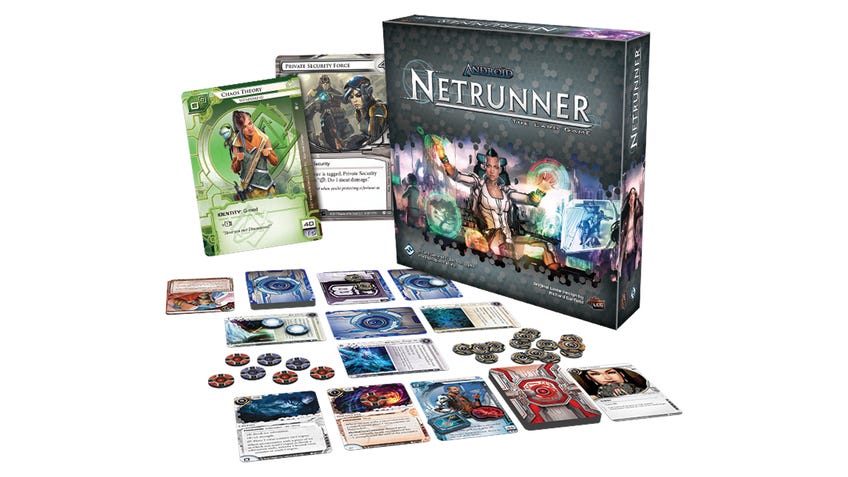
Collectible card games are expensive. Too expensive. The business model - which asks players to cash their paychecks on endless booster packs in hopes of securing the one card they actually want - is willfully exploitative. So thank god for Android: Netrunner, which came along in the early 2010s and showed the world that publishers could make the CCG space a little bit kinder. Netrunner was a great game for a whole bunch of design reasons, but the thing that stands out in retrospect was its ‘living card game’ mantra: the idea that buyers would know exactly what was in each pack before they bought them. That was a revolution, and the LCG format has persisted unabated since.
Android: Netrunner is out of print, but secondhand copies can be found here and there. Alternatively, spiritual successor Project NISEI is available in print-and-play form on a pay-what-you-like basis.
2. Star Wars: X-Wing Miniatures Game
The miniatures game that welcomed everyone to the table
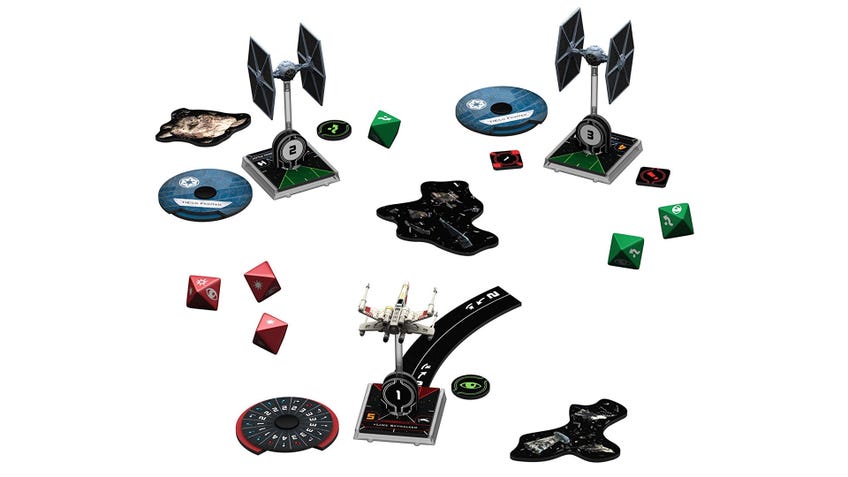
Right out of the box, X-Wing's starter set lets you immediately jump into deep-space dogfights. You receive three pre-assembled ships, a handful of tokens and plenty of cards to create your own little intergalactic skirmish on the kitchen table. In an industry that so frequently favours huge handfuls of dice and £100 unpainted orcs, Fantasy Flight democratised the minis experience for total newcomers. X-Wing remains a beloved institution, so let's hope that lesson isn't forgotten anytime soon.
Buy Star Wars: X-Wing Miniatures Game on Amazon US or Amazon UK.
3. Codenames
A party game made with designer pedigree
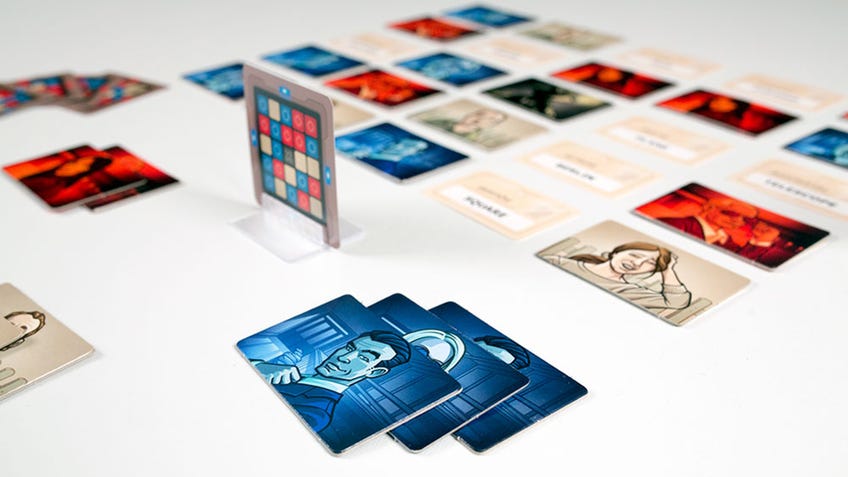
Who would've thought that Vlaada Chvátil would bring the world a classic party game? The sort of thing that gets stocked in supermarkets? Somehow, the designer who made Through The Ages and Galaxy Trucker - arcane, wonderful tabletop experiences for hardcore tabletop lifers - arrived in 2016 with a lightweight, sub-£20 box that has already been recorded as an all-time, ultra-mainstream modern classic. It is easy to look at casual games like a monolith - that, no matter what, when you go over to a friend's house, Apples to Apples will make an appearance. Chvátil broke that hegemony in two.
Buy Codenames on Amazon US or Amazon UK.
4. 7 Wonders
The card game that put drafting on the map
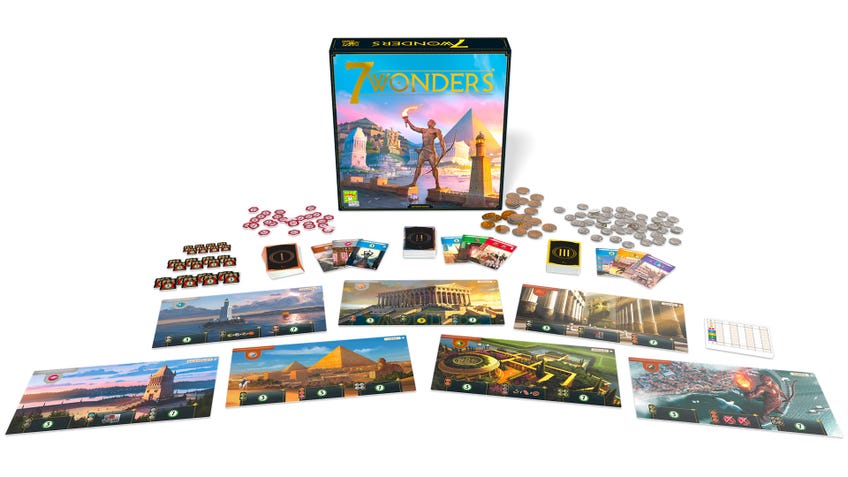
Little-known fact: 7 Wonders didn't actually invent card drafting. Picking and passing cards around the table first surfaced in a little-known game called Fairy Tale. That said, Antoine Bauza's greatest design proved that a massive, era-spanning civilisation-building game could be effectively delivered in 45 minutes, with an indelible ease of access that brings in everyone from your most hardcore grognards to your parents. If there is a marquee family-friendly game that every board game baron tries to replicate, 7 Wonders is, and always will be, a great target.
Buy 7 Wonders on Amazon US or Amazon UK.
5. Star Realms
A huge, cinematic experience - in nothing more than a deck of cards
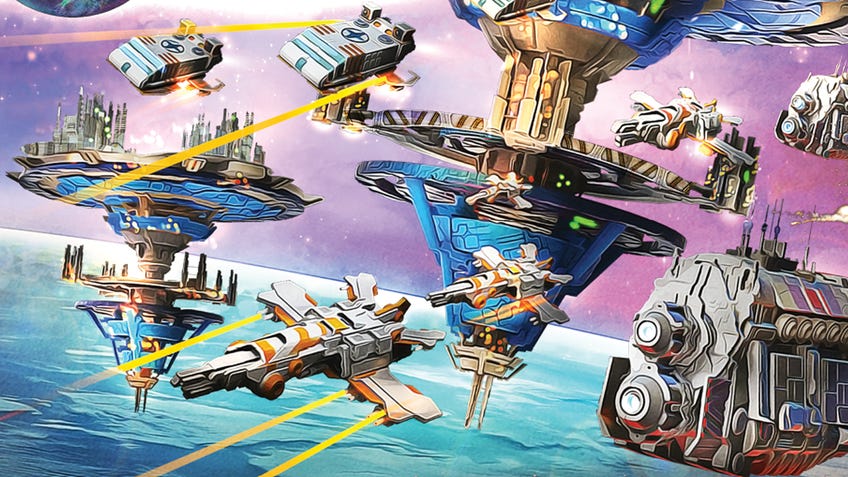
All of us have become accustomed to the reality that our homes will forever be clogged with heaps of supersized cardboard boxes. That never seemed particularly fair. I mean, a copy of Lords of Waterdeep could feasibly fit in a shoebox. But then along came Star Realms, which proved that not only could a rich, dynamic empire-building game live in a box little bigger than a standard pack of cards, it also didn't need to cost more than £15. White Wizard Games heralded the era of the svelte, minimalist counter to board gaming's maximalist fetish. We certainly appreciate that relief.
Buy Star Realms on Amazon US or Amazon UK.
6. XCOM: The Board Game
The game that merged iPhones with dice rolls
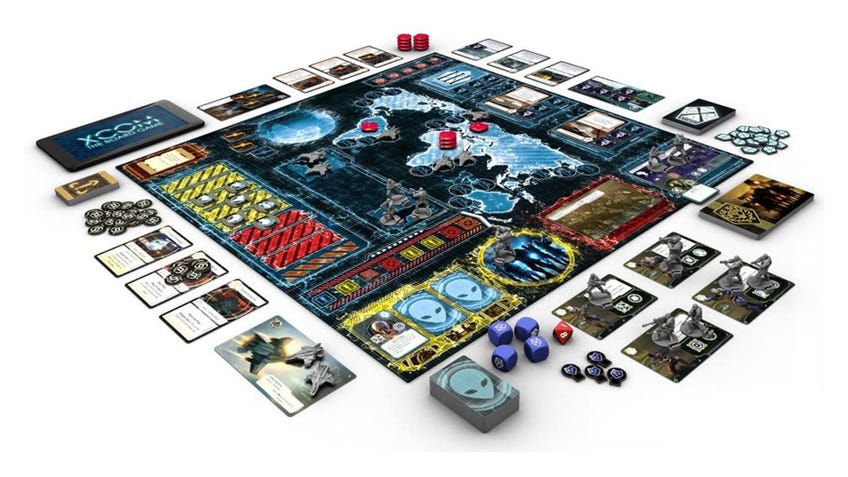
It's sort of weird that XCOM didn't catch on more. The game was generally well-received when it made landfall in 2014, and translating a beloved strategy video game franchise to the tabletop realm seemed like a winning pitch. It’s not played as much these days - which is a shame, because there aren't many games that take its risks. To simulate its alien invasion, XCOM uses a corresponding digital app to put some added pressure on the players. Some people can't get over the heresy of busting out an iPhone in the middle of a board game. (A cardinal sin!) But the industry has taken notice, and between Mansions of Madness and Journeys in Middle-Earth, technology is augmenting the tabletop experience as we know it.
Buy XCOM: The Board Game on Amazon US or Amazon UK.
7. Dominion
The original deckbuilder
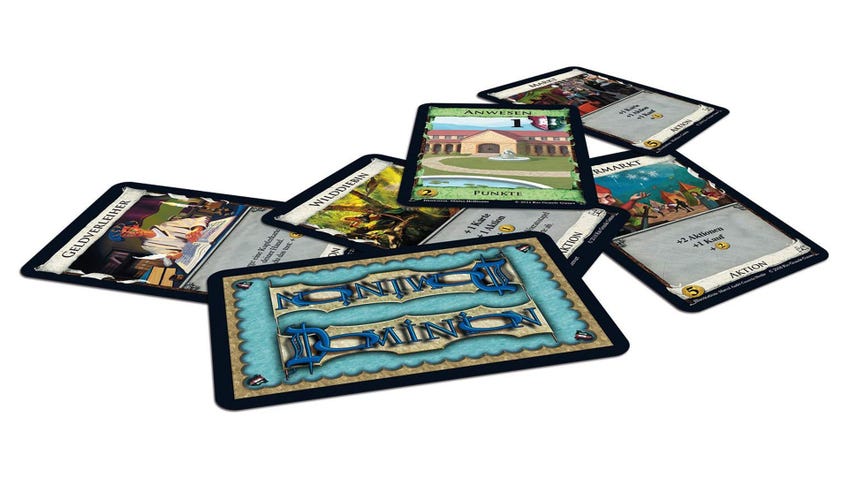
Here's a hot take: no game has done deckbuilding better since Dominion pioneered the mechanic in 2008. Yes, other games have bolted on a richer narrative, additional mechanics or a change of resources (dice-building, bag-building, et al.), but as far as that simple sensation goes - adding good cards to your deck and slowly weeding out the bad ones - Dominion remains lean, mean and relentlessly fascinating. It is strange to find a board game with a radical new idea that fits so perfectly amongst the greater tabletop oeuvre. It's honestly surprising that it took until 2008 to come up with the mechanic in the first place. Today, you can find deckbuilding in everything from hard-nosed RPG-in-a-box Gloomhaven and the Pathfinder Adventure Card Game to video games such as Slay The Spire. Not bad for a £30 box.
Buy Dominion on Amazon US or Amazon UK.
8. Zombicide
Kickstarter's first golden child
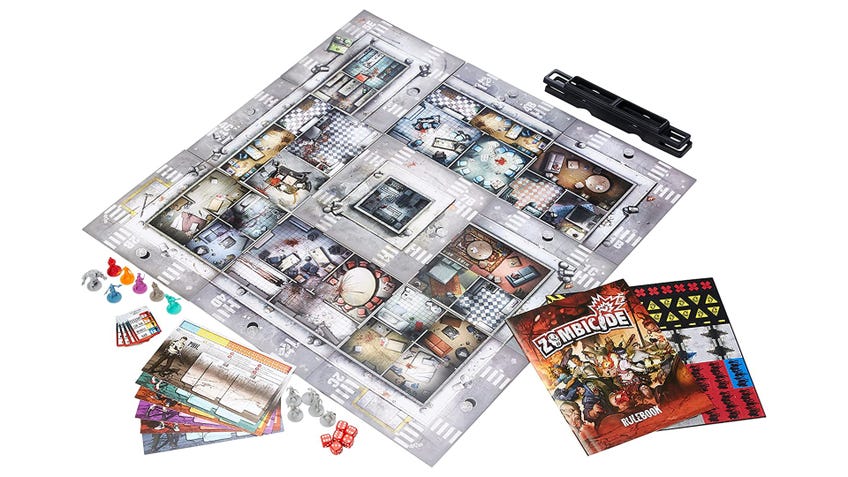
Okay, let's be clear, Zombicide is a pretty standard Ameritrash blood 'n’ guts romp. There was no shortage of figurine-stuffed boxes before it, and the continued onslaught of cargo will continue long after it fades to memory. All that being said, Zombicide still absolutely deserves to be on this list for what it did to crowdfunding. It is difficult to remember how, in 2012, the idea of turning to the public to get a tabletop project off the ground was a truly unprecedented endeavor. But Zombicide raised a whole bunch of money and christened the era of the seven-figure Kickstarter for years to come. Our plastic lust will never be satiated.
Buy Zombicide on Amazon US or Amazon UK.
9. Cards Against Humanity
The game that made tabletop fashionable
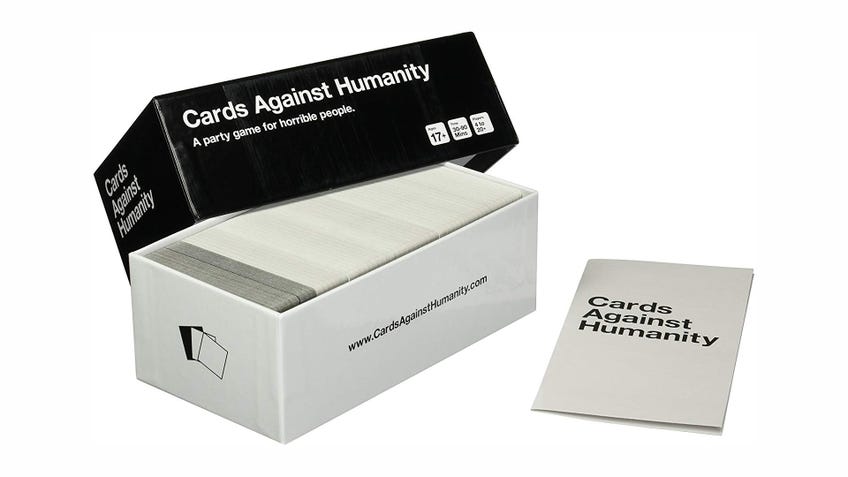
Love it or hate it, it is undeniable that a huge cross-section of people were introduced to the world of indie, small-batch board games - the part of the industry that lives outside of the Hasbro estate - through Cards Against Humanity. The humour hasn't aged well, the gameplay was always a little trite and the allegations of abusive workplace culture are hard to swallow, but in the fallout of its seismic release back in 2011 newly-ordained tabletop fans were flocking to their friendly local game stores. That has to count for something.
Buy Cards Against Humanity on Amazon US or Amazon UK.
10. Pandemic Legacy: Season 1
The game that changed what board games could be
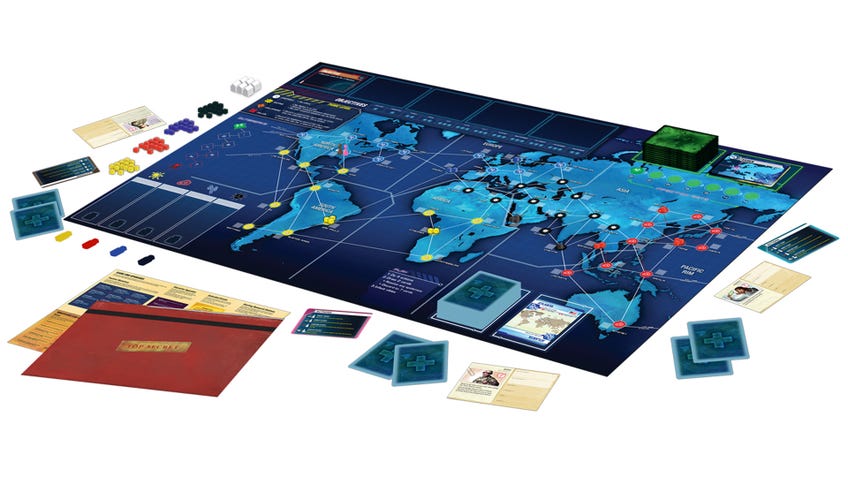
Pandemic Legacy wasn't the first legacy board game; that honour belongs to Risk Legacy, which arrived in 2011. That being said, Pandemic Legacy deserves the honour here because 1) Pandemic is a better game than Risk, and 2) Risk Legacy never became the white-hot phenomenon that the first season of Pandemic Legacy did in 2015.
It is difficult to describe the moment looking back, but the tabletop community was shoved face-first into this strange new world where, for the first time ever, spoiler warnings waited in the depths of the cardboard. Matt Leacock and Rob Daviau sparked an industry revolution, where it felt like every new ambitious tabletop adventure was equipped with some sort of persistent element. (Some of those worked better than others, but still.) Plenty of games introduce new mechanics, fusions or world-building devices, but very few have had such a profound impact on what the medium of board gaming could be as a storytelling device and an art form. They should be proud.



